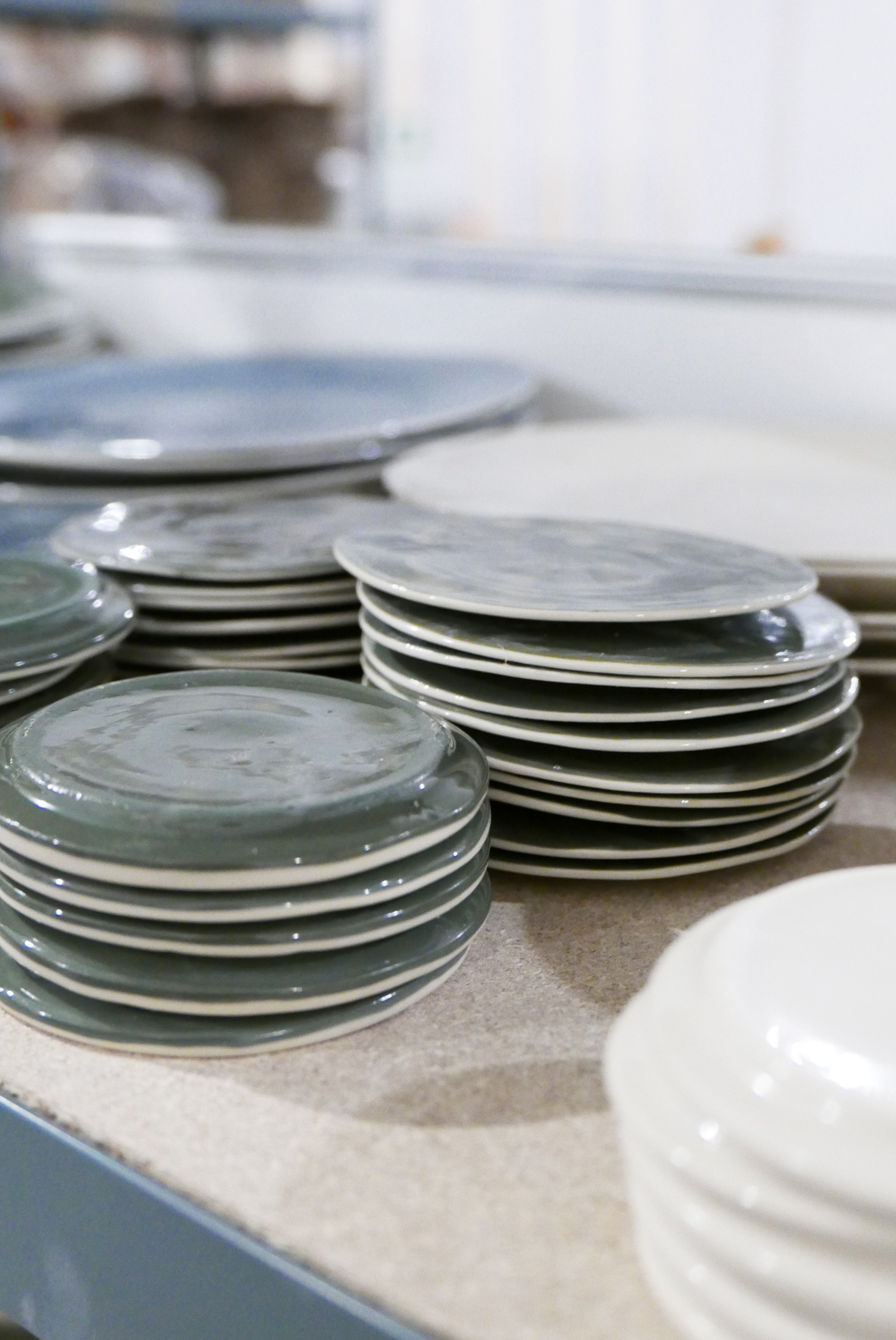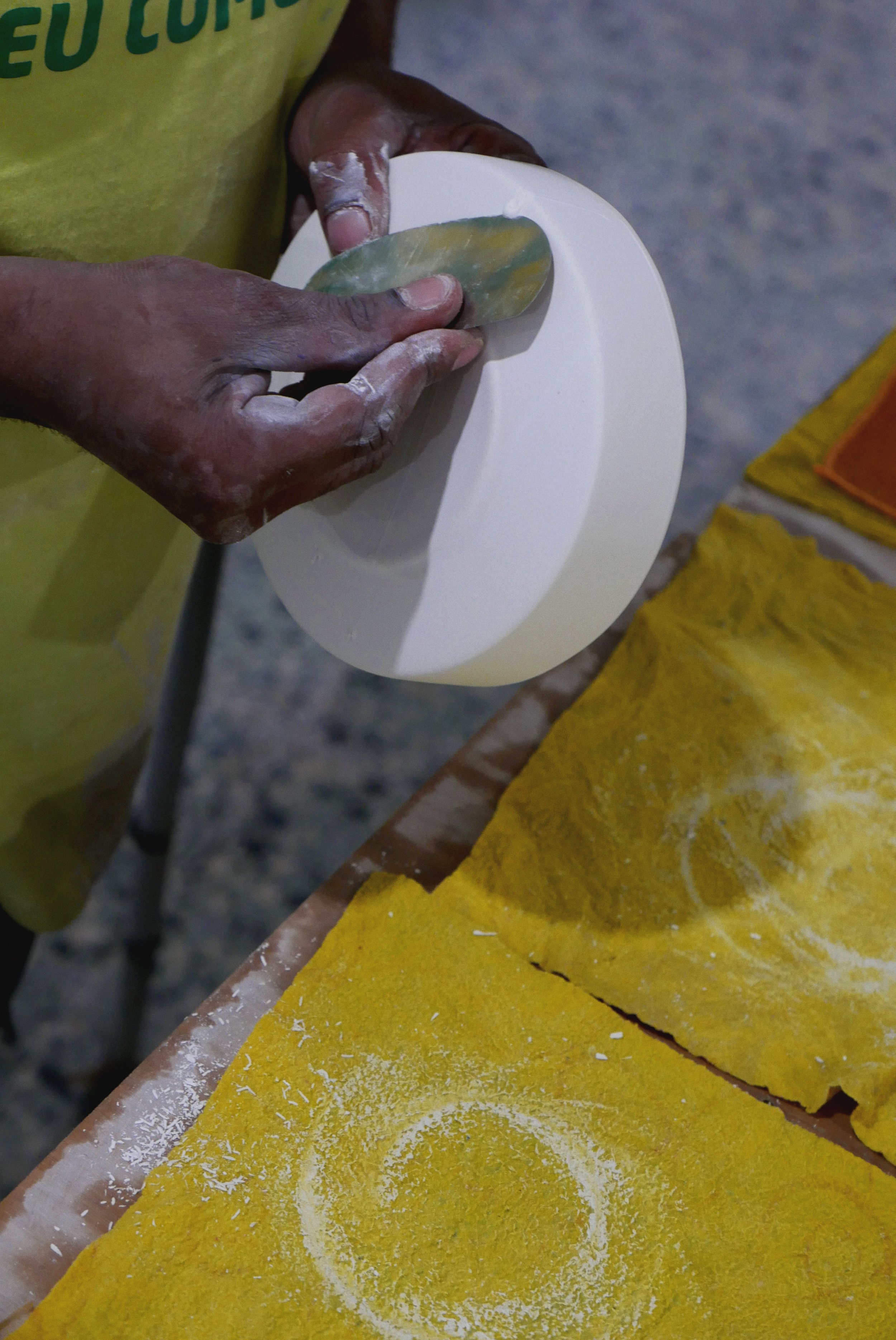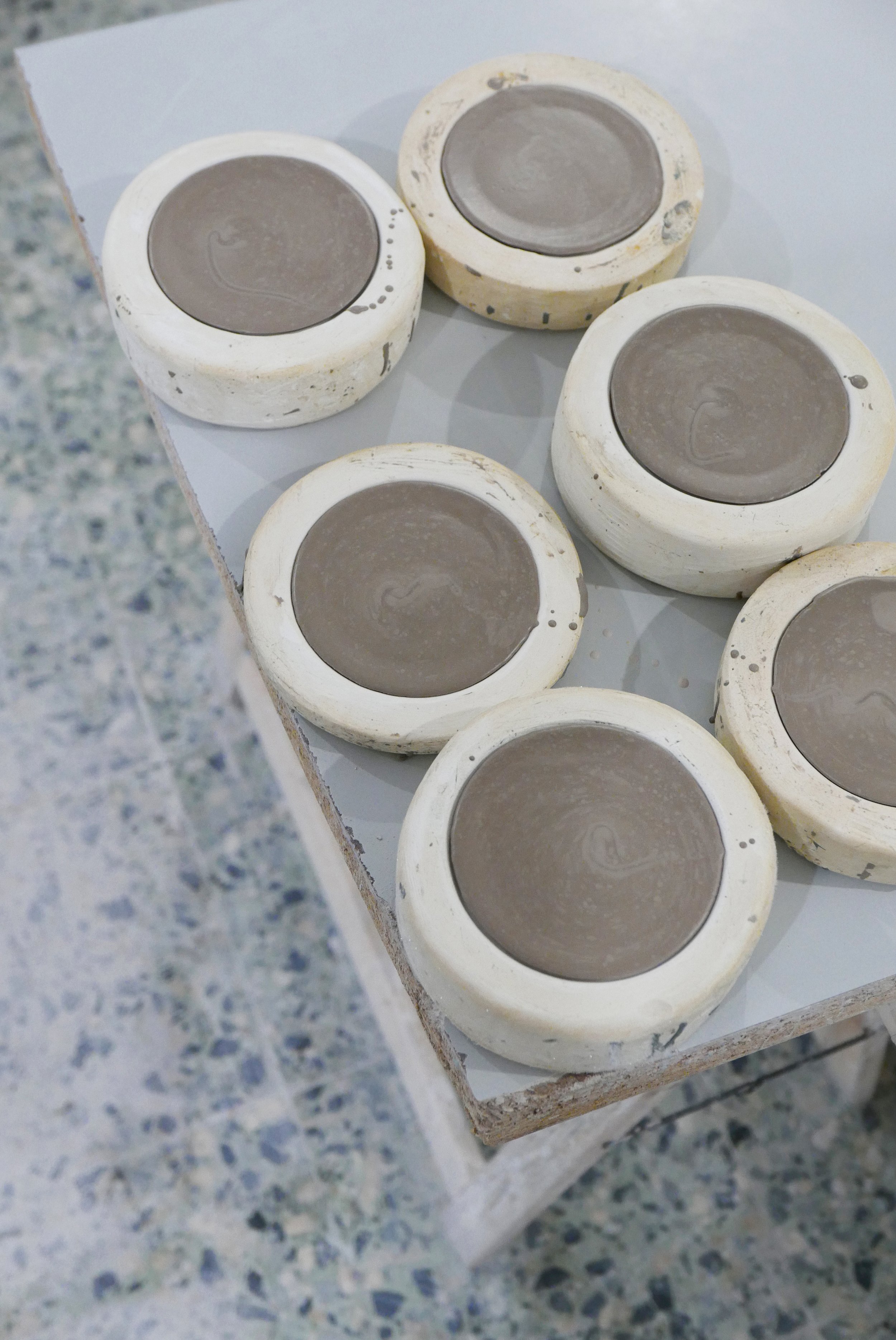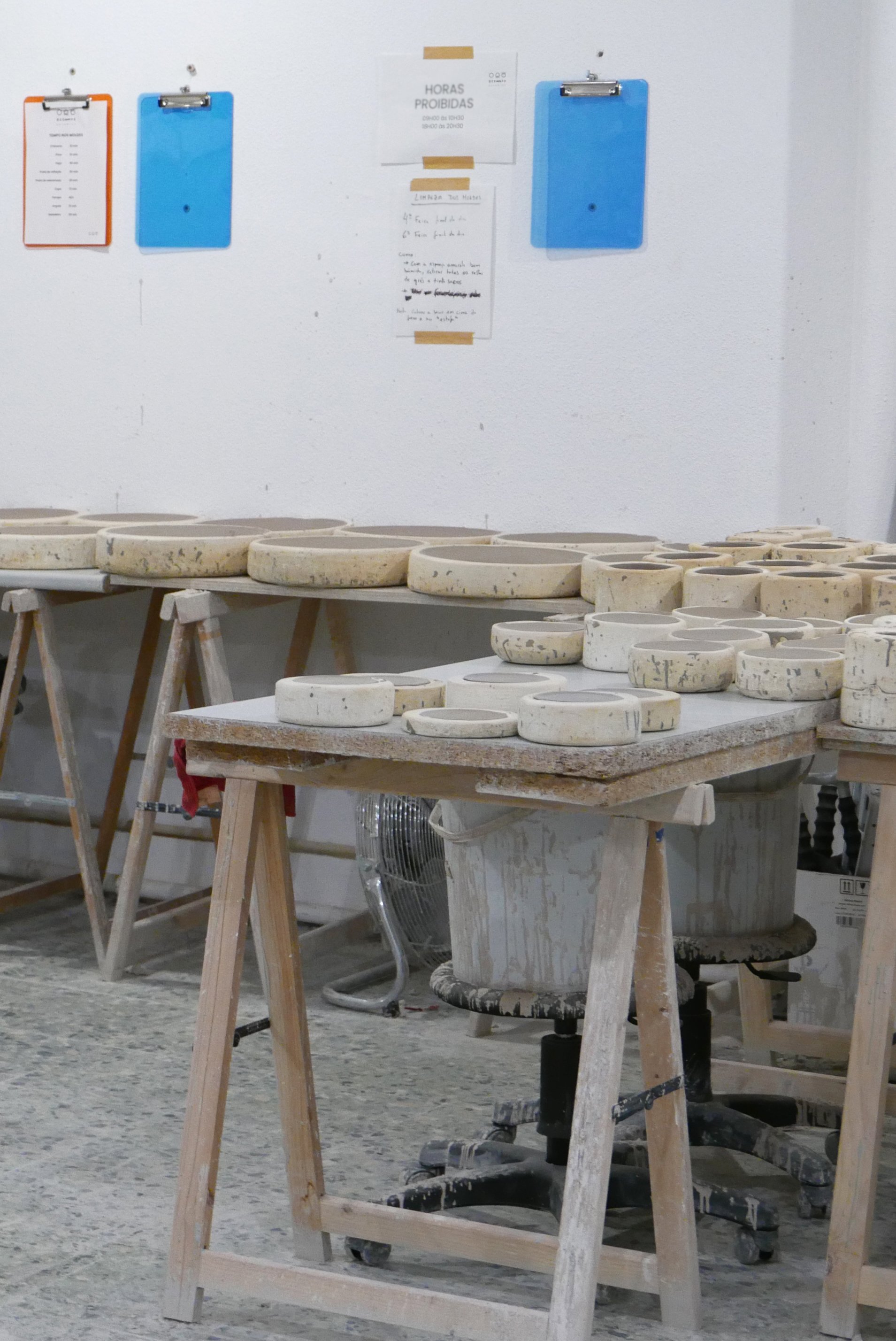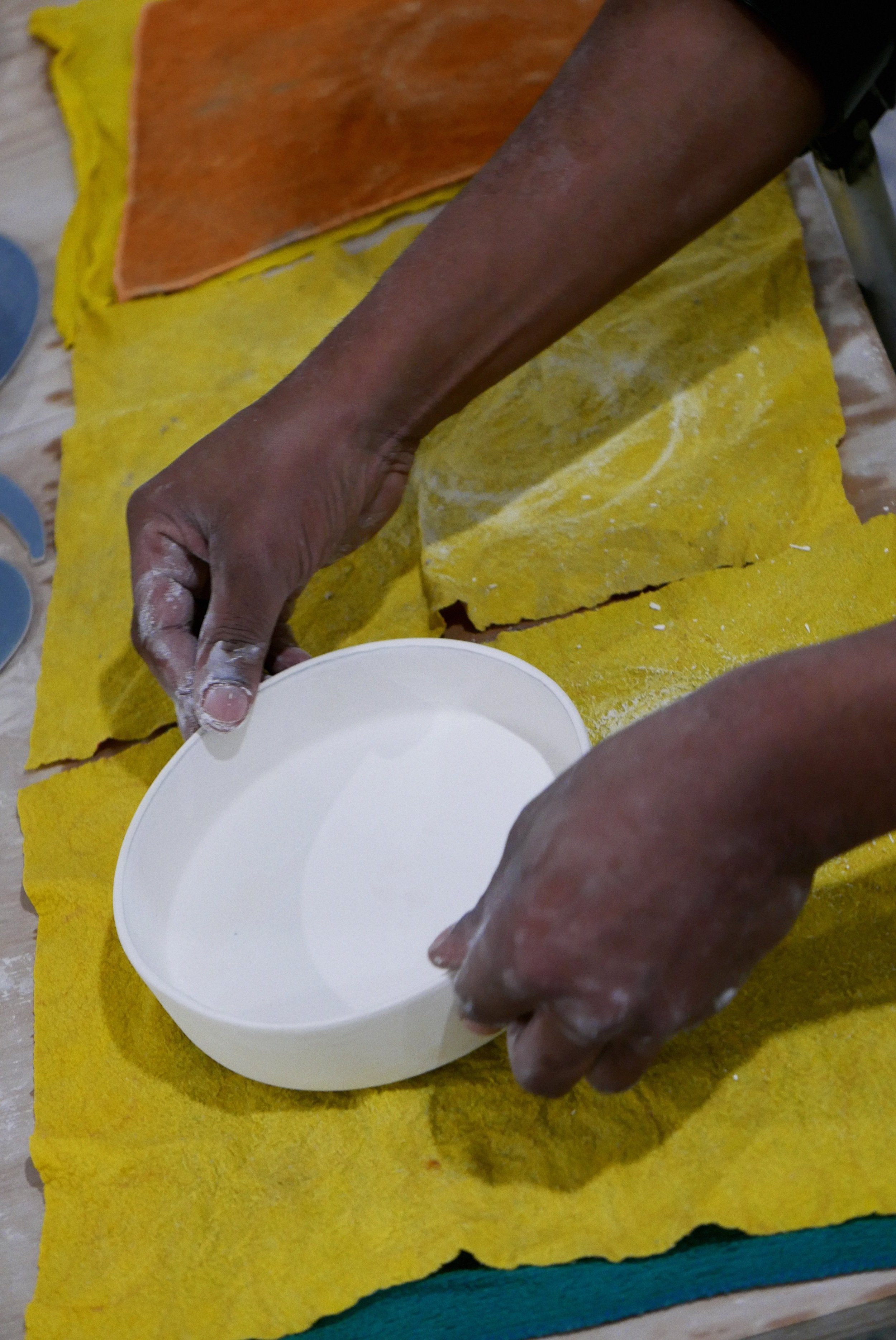A story of ceramics & second chance, Reshape
Finding common ground between prisoners, either getting to the end of their sentence or just out of jail and a ceramics brand might be tricky. Keep reading and you’ll soon find out they share a lot more than one may think.
Ceramics are deeply rooted in Portuguese craftsmanship traditions. Fast forward to today: it’s now everywhere, with new ceramists popping up everyday. Among this crowd, one Portuguese brand really caught my attention. Their signature is a collection of delicate, soft, earthy-toned and minimalist features ceramics. Hiding under the name “Reshape Ceramics” is more : a project aiming to empower prisoners through work, while in jail or just after they’re released.
Can you describe Reshape in a few words ?
Reshape is a project whose aim is to enable people who’re in jail or just out of jail to work and get empowered by the practice of ceramics. We chose the name Reshape for the brand because we found it to be the word that would best describe what we are about. We want people to reshape themselves by reshaping the raw materials. When we say Reshape we see it as a second chance for both the people involved and the materials - we want the participants in the project to be able to develop skills and be empowered. Ceramics is almost a metaphor for the type of change we want to cause.
What's the origin of the project and who is behind it?
Reshape Ceramics is one of the projects developed by APAC Portugal - a non-profit organisation that fights criminal recidivism by giving the necessary conditions and tools for the reintegration of the prison community. The project started when in 2019 APAC was visiting Caxias prison and found a completely equipped ceramic workshop. At the time APAC was trying to have private companies start hiring people that were still in prison, using the prison infrastructure. Because we were being unsuccessful to show the potential of this community to the companies, we decided to start a business ourselves that does it - as a way to be an example to others. We did a pilot in November and December of 2019 and Reshape Ceramics started producing in October 2020. Right now, we have two ateliers : the one in Caixas prison and one in Arroios, for inmates who are free.
What’s the role of ceramics in the reintegration process ?
First, ceramics is above all a trial-and-error activity, and it has so many external factors that sometimes you may do everything right and still not have your desired result. You need to be patient and resilient and not let yourself down when you make a mistake, you need to find what the mistake was and not repeat it. Ceramics is also very delicate and about repetition - it encourages participants to create a careful and well-thought routine. Then, our participants mainly work in groups. If you work on a ceramic piece with another person, then you learn how your actions affect other people's work - you need to mold the piece so your colleague can paint it. And, if you or your colleague makes a mistake, that piece will have a defect even if the other person does everything right. In APAC we like to say that the necessary changes for a better prison system "depends on everyone", and so does our ceramics. Finally, the final product is something that is beautiful, useful, and you can see your effort turned into something that you like and other people will like. It helps with self-esteem and the sense of belonging.
How do you see Reshape’s future?


